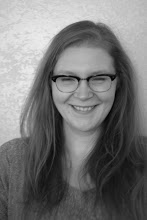So, as previously mentioned, I have been reading of late in Louis Jacob's The Book of Jewish Belief. Want to check it out for yourself? Take a look on Amazon here. In all honesty, it's a hybrid between a text book and Louis' manifesto of the Jewish faith. But – and this is a big but – it is absolutely breathtaking.
Now, some prefacing: First, I know that this book is probably much more impassioning to me than it will be for most. It has ignited within all of the love, respect, admiration and awe I felt for Judaism before joining The Church of Jesus Christ of Latter-day Saints. I honestly felt for some time that conversion to Judaism was plausible. But then I found the Gospel, and found a way to be a Mormon and still a Jew.* Second, I feel like I must also say, that I know this might be more interesting to me than...really...any of you because I feel particularly called to study the mores, spirituality and traditions of the Hebrews. So yeah. You have been duly warned.
Also, a note: I would highly encourage you to replace the word 'Jews' with 'Mormons' and 'Judaism' with 'Mormonism' in the quotes to follow in order to catch the spirit of their impact they have had on me as I have gone through this book.
In chapter five of The Book of Jewish Belief, Jacobs explores the idea of the faithful of Judaism as the chosen people. So much of the verbiage here falls perfectly in line with the doctrines of the restored Gospel (go figure). Not only that, though. Some of Jacobs' thoughts in this chapter contain such simple truth about Deity's interaction with His chosen and how those chosen interact with the rest of the world – truth stated so simply and poetically and lovingly that we Saints would do well to listen up.
Jacobs explores Judaism as particularistic (concerned only with Jews) and universalistic (concerned with all humanity), asking which are we? "The uncomplicated answer," he writes, "is that Judaism is both." This is so true of our own Church, my beloveds, but I wonder how much we regard it as such.
Sure, we engage in missionary work; and what a wonderfully important work that is! However, I tend to categorize our missionary work as particularistic as we are interested primarily therein with converting souls to Mormonism. There is something much more powerful in the concept of being chosen, I think.
Rabbi Jacobs describes the chosen status of the Jews in this way:
Only by blowing into the narrow end of the shofar (pictured at right) can a musician create beautiful, rich sound in the wide end...the Jews as a particular [chosen] people have a role of service for the good of all people.
I would posit that the Saints embody this image in the latter days. Our Father has a work for us to do, both individually and as a Church. While part of that work is to bring others into the fold, I have to believe that part of it is also to be the few that our Parents employ to bring beautiful music into the world. To lift. To inspire. To...just...be. To be the "fifty righteous within the city."*
I have to wonder if we realize this role of ours? If so, do we balance it with an equal admiration and respect for those not of our faith? Jacobs very powerfully asserts that
One thing is quite certain. The idea of the chosen people does not mean that God is concerned only with the Jews. Such a perverse idea would be entirely contrary to Jewish teaching, which, after all, believes in the God who created all people in His image. Listen to this verse in the Bible (Isaiah 19:24–25). To appreciate it fully one must realize that Egypt and Assyria, great powers with their own interests, were often at war with little Israel. The prophet can still say: "In that day shall Israel be the third with Egypt and with Assyria, a blessing in the midst of the earth for that the Lord of hosts hath blessed him, saying: 'Blessed be Egypt My people and Assyria the work of My hands, and Israel Mine inheritance.'...While Israel is called God's inheritance, Egypt is called His people and Assyria called the work of His hands.
How often, if ever, do we take this inclusive, universalistic view toward our brethren outside of the Church? I would say far too infrequently. I have to believe that the Father views all of His children as His children and loves all of us with a perfect equality. Why, then, do we so unabashedly pedestal ourselves at the risk of lowering in esteem our brothers and sisters outside of the new and everlasting covenant? Perhaps we would be better able to view all the earth with astonishment and awe, with passion and compassion, if we were better at seeing all as equal in the Lord? For, as Jacobs says, "Nowhere is it suggested that other peoples have no role to play in God's plan for humanity."
*There's an article of this title by Professor Fred E. Woods about the life of Alexander Neibaur, who was the first known male Jewish convert to Mormonism. The article in its entirety (which is amazing and highly recommended) can be downloaded from The Mormon Historical Studies Foundation here.




0 comments:
Post a Comment